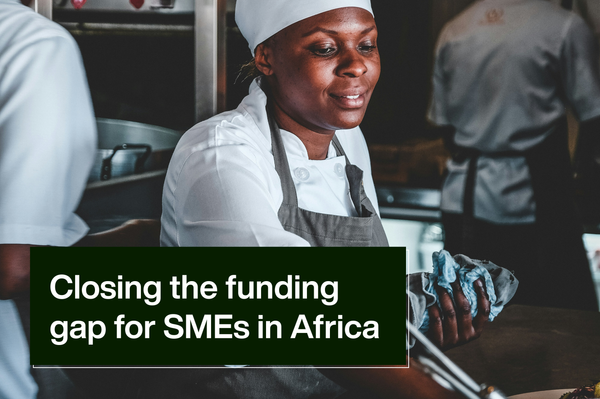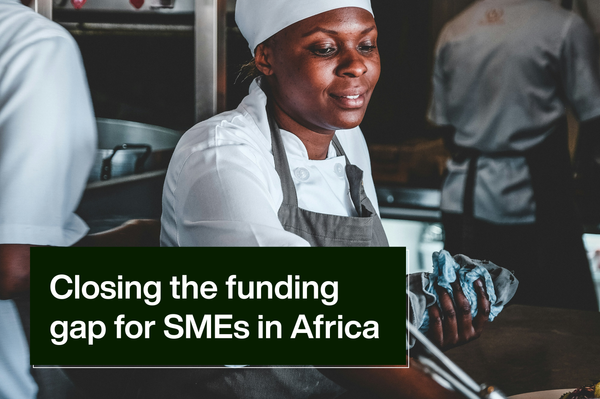African Countries with SME Financing Initiatives and Programs
SME financing is more than just capital, it is capacity, mentorship, and opportunity. With these programs, Africa is not just investing in businesses, it is investing in its future.

Small and Medium-sized Enterprises (SMEs) play an important role in driving economic growth and employment across Africa. Recognizing their importance, many African countries have launched targeted financing initiatives and programs to support SMEs with access to capital, technical assistance, and capacity building. Here's a look at some of these efforts across the continent:
Nigeria
Nigeria has developed a robust ecosystem for SME financing through both government and private sector initiatives. Some notable programs include:
The BOI provides long-term financing to SMEs in sectors such as manufacturing, agriculture, and agro-processing. Their loans are affordable and come with flexible repayment terms.
This pan-African initiative provides early-stage entrepreneurs with $5,000 in non-refundable seed capital, business training, and mentorship. Every year, up to 1,000 entrepreneurs across the continent benefit from the program.
CBN offers intervention funds through commercial banks at below-market interest rates to promote SME growth, especially in agriculture and manufacturing.
Kenya
Kenya’s vibrant startup ecosystem has been matched with innovative financing solutions aimed at empowering local businesses:
This fund, supported by IFC, Business Partners International, and others, provides debt and quasi-equity financing between $50,000 to $500,000 for young SMEs across sectors. It’s designed to bridge the financing gap faced by early-stage businesses.
They have create an avenue for SMEs to access both secured and unsecured loans with flexible repayment plans, competitive interest rates, and loan amounts of up to Ksh 3 million without collateral.
Ghana
Ghana continues to prioritize SME development through national programs designed to enhance access to finance and technical assistance:
Backed by the Ministry of Finance and implemented by the Ghana Enterprises Agency and Development Bank Ghana, this initiative targets high-growth SMEs. It combines financial support with capacity building to help businesses scale sustainably.
South Africa
South Africa has developed one of the most structured ecosystems for SME development:
SEFA provides loans, asset finance, and bridging finance to small businesses that may not qualify for traditional bank loans. The agency also partners with intermediaries like microfinance institutions and cooperatives to reach underserved entrepreneurs.
The National Empowerment Fund (NEF) provides equity financing, loans, and business support services to Black-owned businesses, with a focus on key sectors such as manufacturing, ICT, and so on. As a catalyst for economic transformation, the NEF plays a leading role in advancing Black economic participation by offering both financial and non-financial support to Black-empowered enterprises. It also actively promotes a culture of savings and investment within Black communities.
Pan-African Initiatives
Across the African continent, a growing number of regional programs are working to bridge the SME financing gap, especially for women, youth, and underserved entrepreneurs.
These initiatives are designed not just to mobilize capital but to create systemic change, build inclusive financial ecosystems, and unlock long-term economic potential.
The African Development Bank supports local financial institutions across Africa with long-term liquidity, technical assistance, and risk-sharing mechanisms. While AfDB does not finance SMEs directly, it empowers banks, leasing companies, and microfinance institutions to serve SMEs more effectively.
Led by the International Finance Corporation, this platform connects financial institutions, fintechs, and policymakers to promote best practices and innovative models in SME finance. Through events, research, and partnerships, the forum fosters collaboration and scalable solutions to address the financing needs of SMEs across the continent.
To transform policy into meaningful action and bring prosperity to millions, the African Union (AU) launched the WYFEI 2030 Initiative. The goal is to unlock USD 100 billion in financing for at least 10 million women and youth by the year 2030, building on and integrating existing public and private sector efforts. WYFEI 2030 reflects the AU’s longstanding commitment to inclusive development, not only as outlined in its Constitutive Act but also as a moral and economic imperative. By prioritizing financial and economic ininclusion, this initiative seeks to accelerate the continent’s broader goals of equitable growth, social transformation, and sustainable development.
Access to finance remains one of the most critical challenges for SMEs in Africa. However, through dedicated national and pan-African programs, many countries are bridging this gap. These initiatives not only inject much-needed capital into the SME sector but also provide the tools, mentorship, and support needed for long-term sustainability.
As more African governments and financial institutions prioritise SMEs, the continent moves closer to unlocking its full entrepreneurial potential.




